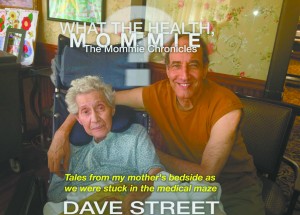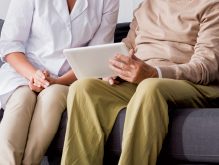 One of the special guests appearing at The Worlds Stage is Dave Street, who in his earlier days was a well-known New York City punk comedian, hanging out with members of The Misfits, Ramones and others, whose life had taken a few career transformations as he’s discovered his true calling, an empowering enabler of the positive human spirit and our collective abilities to enable a better world. As an educator of sustainable futures and understanding the Earth’s biodiversity, he performs and teaches young students about the Earth, the Environment and our need to be in balance.
One of the special guests appearing at The Worlds Stage is Dave Street, who in his earlier days was a well-known New York City punk comedian, hanging out with members of The Misfits, Ramones and others, whose life had taken a few career transformations as he’s discovered his true calling, an empowering enabler of the positive human spirit and our collective abilities to enable a better world. As an educator of sustainable futures and understanding the Earth’s biodiversity, he performs and teaches young students about the Earth, the Environment and our need to be in balance.
However, one day, he came to the realization of the importance of taking notes of what was transpiring during his mother’s illness, how she was being mis-treated by the current systems, and created a solutions-based Preparation Guide filled with Knowledge and Action Steps so that others around the world didn’t have to have a repeat performance of what Dave’s mother endured.
What emerged was a wonderful and empowering manuscript, “What the Health, Mommie?” written at the bedside of his Mother as she was living the last weeks and days of her life… with the hope that others can learn from the ordeal and be prepared to create necessary solutions.
Steven: What led you to write this?
Dave: This book came about as a result of staying with my beautiful mother, Adele, as she went back and forth through a medical maze of emergency rooms, hospital stays, a rehab facility, nursing home and finally hospice.
I started noticing things that seemed wrong with the system and began writing things down. It became obvious to me, based on what I saw my mother going through, that changes were badly needed in the system.
Steve: Now that you’ve gone through this, what are the benefits of this project for others?
Dave: It offers practical ideas and suggestions that can help to empower people to make good, educated choices to help them get healthier and get better if they-or a loved one- ever ends up in a hospital or nursing home.
Plus, based on research and conversations I’ve had with caregivers and health professionals around the planet, it even offers practical suggestions for hospitals, nursing homes- and even the government- on how to improve their own systems.
Steve: What will the readers and their loved ones get from this knowledge?
Dave: I’m hoping they will get the ability to have some control over what can sometimes seem like a cruel and overwhelming system.
Additionally, this book is meant to be helpful for anyone on the planet, regardless of where they are. Although it is written based on my mother’s experience in our health care system in America, the information is valid throughout the world. Regardless of where people are- even if they are in an isolated village or desert where there are no hospitals or nursing homes-it is still important for their health that they stay hydrated and that they practice cleanliness to help prevent infections. The information in the book can be useful to them as well.
Steve: What was going on in your life and in the life of your mom during this time?
Dave: My mother’s life had become a nightmare- a broken roller coaster ride of intravenous lines, constant dehydration, x-rays, MRIs and in the hospital pict lines and drainage incisions among other procedures.
I often felt like crying or screaming when I saw what she was going through. I felt helpless, traumatized. One thing that kept me going was Facebook. I think the book kind of grew out of there. I started posting updates about mom’s condition and what we were experiencing. My Facebook friends gave me constant support and unconditional love. I think I somewhat owe my sanity to them.
By the end of the journey, I definitely got closer to my mother than I ever had been. When I was younger, I used to pretend I didn’t have parents. Now I realized all the things mom had done for me in life that I never before really appreciated and never acknowledged to her.
There was one ‘highlight’ of our time together. Something that seemed to give her comfort is that I brought in an IPad and would give her a You Tube ‘concert’ of her favorite musical acts from when she was younger- Frank Sinatra, Louis Armstrong, etc. She would open her eyes and seemed to enjoy it, even occasionally commenting on the music. I think it calmed both of us down. We did it almost every day for her last month of life. Since then, I have learned much about the use of music as an effective tool for improving health.
Steve: What did you see occurring that empowered you to do this?
Dave: It seemed like the system itself was helpless at times to help mommie. For instance, one thing that I really believe took a toll on mom was constant dehydration. From what I could see, it seemed like the facilities didn’t have the staff or resources to keep mom hydrated. Or else, the system’s ‘solution’ was to continuously stick intravenous lines into her- and I don’t consider that any real solution.
I also saw my mom almost continuously stricken by infections that left her weak. Seeing her laying weak in bed with infections in her body also motivated me to do this project.
Steve: What were the big problems that held back the system?
Dave: From what I could tell, not enough staff. And the staff that was there seemed generally overworked. Also, the need for better communication among everyone in the system, and even among the facilities. I always felt that the hospital never adequately communicated to rehab the severity of mom’s condition. And not enough money- at least that’s what the doctors and administrators at the hospital usually seemed to complain about.
Steve: What are the biggest changes you’d like to see?
Dave: At the hospital, a more innovative, high tech plan of action to eradicate infections. Maybe tiny drones to chase out bad bacteria. At the nursing home, a better way to prevention dehydration. More money for the hiring of more staff. More sensitivity to the unique needs of individuals. In the book, there is a whole chapter on suggestions and possible solutions for changing and improving the system.
Excerpts from “What the Health Mommie”
© 2013 By Dave Street
FROM THE INTRODUCTION:
“What is a human life worth? How about the life of a senior citizen who has a life threatening infection and needs to be moved out of the hospital and into therapy because Medicare will no longer pay for the stay? What if that senior citizen was your mother or father? What if it was your grandmother or grandfather? What if it was you?”
FROM THE SURVIVAL GUIDE:
“Stay Hydrated:
-Drink plenty of liquids. Make sure that you continuously drink fluids throughout the day. Make sure that enough fluids are available to you. If you need special drinks- like nectar thick drinks- make sure that enough are available- and accessible to you- throughout the day. Make sure the facility is adequately stocked with them.
– Try to keep track of how many drinks you’ve had each day and make sure you’ve had enough- at least seven or eight cups a day.”
EXCERPT FROM CHAPTER FOUR:
“My mother’s favorite performer of all time was Frank Sinatra. She had told me stories how as a girl she would go see him with her girlfriends at the Paramount Theater in New York City- and the cost was a mere twenty five cents per ticket!
I asked her if she would like me to try and find some videos of Frank Sinatra singing. She immediately said ‘Yes’.
The first Sinatra video that I played for mom was “Fly Me to
The Moon”.
Mom noted how young he looked and clearly enjoyed watching him and listening to the music. While she was watching him, one of the aides came into the room and pointed at mom’s hand and said; “Look, she’s moving her hand to the music.”
At that point, it was one of the first things she had physically reacted to.”
Dave Street will be a featured guest at The Worlds Stage www.theworldsstage.com
For more information about the book project, please go to: www.whatthehealthmommie.com
Check Also
Trusted Homecare Agency: Serving Veterans with Free Supplemental Home Healthcare
When it comes to healthcare, veterans deserve the best care possible. For veterans seeking in-home …
 South Florida Health and Wellness Magazine Health and Wellness Articles
South Florida Health and Wellness Magazine Health and Wellness Articles




